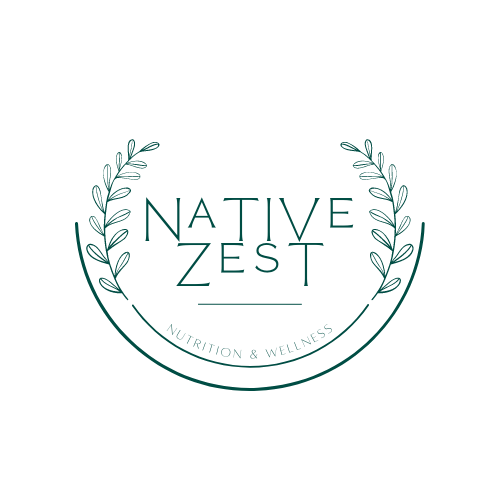
Sweeteners, is one better than the other?
Aspartame vs. Stevia
Aspartame
When consuming aspartame and caffeine, it creates a short addictive high similar in the way cocaine works with the release of exotoxins.1
Aspartame contains an essential amino acid called phenylalanine; the amount of aspartame generally found in 1 liter of soda is equivalent to one egg.1
Impact on blood glucose
In a study, patients with longstanding reactive hypoglycemia were found to have an fasting hyperglycemia after consuming aspartame.2
Regularly consuming products containing aspartame may result in elevated fasting glucose levels and impaired insulin responses or a resistance to insulin. 3
Concerning gut microflora
Aspartame metabolizes quickly in the body and not much makes it to the gut, however, a fecal analysis of gut bacterial composition showed aspartame to increase abundance of Enterobacteriaceae (common cause of UTI’s) and Clostridium leptum (found in patients with IBS).4,3
In a study of individuals, after 4 days, there were no differences found in bacterial abundance but there were notable differences in microbial diversity between those that consumed aspartame and those that didn’t, suggesting metabolic changes occurred. 3
Potential health effects
In the body, Aspartame breaks down to amino acids and methanol, the latter has been linked to depletion of (reduced) glutathione (GSH)5
Aspartame may cause depletion in most metabolites of the trans-sulphuration pathway in the liver (main source of sulfur for production of glutathione), increasing hepatocellular injury; chronic aspartame may even lead to toxic hepatitis5
Aspartame-derivative methanol may cause oxidative stress, leading to liver inflammation and necrosis associated with GSH depletion.5
There are many studies out there suggesting that there are major side effects to consuming aspartame daily, including seizures, severe headaches, insulin resistance, eating disorders, and fatigue but state that more studies need to be done to prove causation.
What foods can you find aspartame in?
As is commonly known, aspartame is found in Diet Coke but it is also used in some baby foods and children’s vitamins. Be wary and check all food labels.
Considerations
It is recommended that you consume NAC (N-acetyl cysteine), which improves liver function, if you are going to consume food or beverages containing aspartame.5 Always consult your doctor before starting a new supplement.
Stevia
Stevia doesn’t add calories and is 200-250 times sweeter than sucrose. 6
Historically, in the countries it naturally grows, Paraguay and Brazil, natives used it in traditional medicine as treatment for burns, colic, stomach problems and sometimes as a contraceptive.7
Impact on blood glucose
Studies suggest that Stevia extract improves glucose tolerance humans, regardless if they are diabetic or non-diabetic.8
Stevia sweetener has shown to lower blood glucose.6
Concerning gut microflora
The growth of lactobacillus reuteri strains (an important natural inhabitant of the human GI tract) are inhibited in the presence of stevia sweeteners.6
Lactobacillus Reuteri provide many health benefits, mainly; prevention of lactose maldigestion, diarrhea, and hypercholesterolaemia.6
Potential health effects
In a recent study, Stevia given to orally daily over 40-60 days, induced diuresis, natriuresis and indicated vasodilation in the kidney.8It has also been shown to decrease fertility in male rats.6
Stevia can help reduce cardiovascular damage and metabolic disorders through its antioxidant and anti-inflammatory effects.8
What foods can you find stevia in?
Stevia isn’t as commonly found as aspartame in products but is used in some SoBe Life Waters, ketchups, and chocolate bars. Stevia liquid extract is easy to find online and in grocery or supplement stores if you wish to use it.
Considerations
Individuals may want to supplement with probiotics if they are regularly consuming Stevia, specifically one containing the lactobacillus reuteri strain.6
- DietCoke-CokeOpenFattiness.png (2000×1330). https://therenegadepharmacist.com/wp-content/uploads/2015/08/DietCoke-CokeOpenFattiness.png. Accessed September 30, 2018.
- H.J., Roberts, M.D., F.A.C.P., F.C.C.P. Aspartame Disease – An Ignored Epidemic. Sunsine Sentinel Press, Inc; 2001.
- Nettleton JE, Reimer RA, Shearer J. Reshaping the gut microbiota: Impact of low calorie sweeteners and the link to insulin resistance? Physiol Behav. 2016;164:488-493. doi:10.1016/j.physbeh.2016.04.029
- Ryan KJ, Ray CG. Enterobacteriaceae. In: Sherris Medical Microbiology. 6th ed. New York, NY; 2014. accessmedicine.mhmedical.com/content.aspx?aid=1101200547. Accessed October 3, 2018.
- Finamor I, Pérez S, Bressan CA, et al. Chronic aspartame intake causes changes in the trans-sulphuration pathway, glutathione depletion and liver damage in mice. Redox Biol. 2017;11:701-707. doi:10.1016/j.redox.2017.01.019
- Deniņa I, Semjonovs P, Fomina A, Treimane R, Linde R. The influence of stevia glycosides on the growth of Lactobacillus reuteri strains. Lett Appl Microbiol. 2014;58(3):278-284. doi:10.1111/lam.12187
- Cox L, April 26 LSC|, ET 2018 09:30pm. What Is Stevia? Live Science. https://www.livescience.com/39601-stevia-facts-safety.html. Accessed October 2, 2018.
- Rizwan F, Rashid HU, Yesmine S, Monjur F, Chatterjee TK. Preliminary analysis of the effect of Stevia (Stevia rebaudiana) in patients with chronic kidney disease (stage I to stage III). Contemp Clin Trials Commun. 2018;12:17-25. doi:10.1016/j.conctc.2018.08.007





